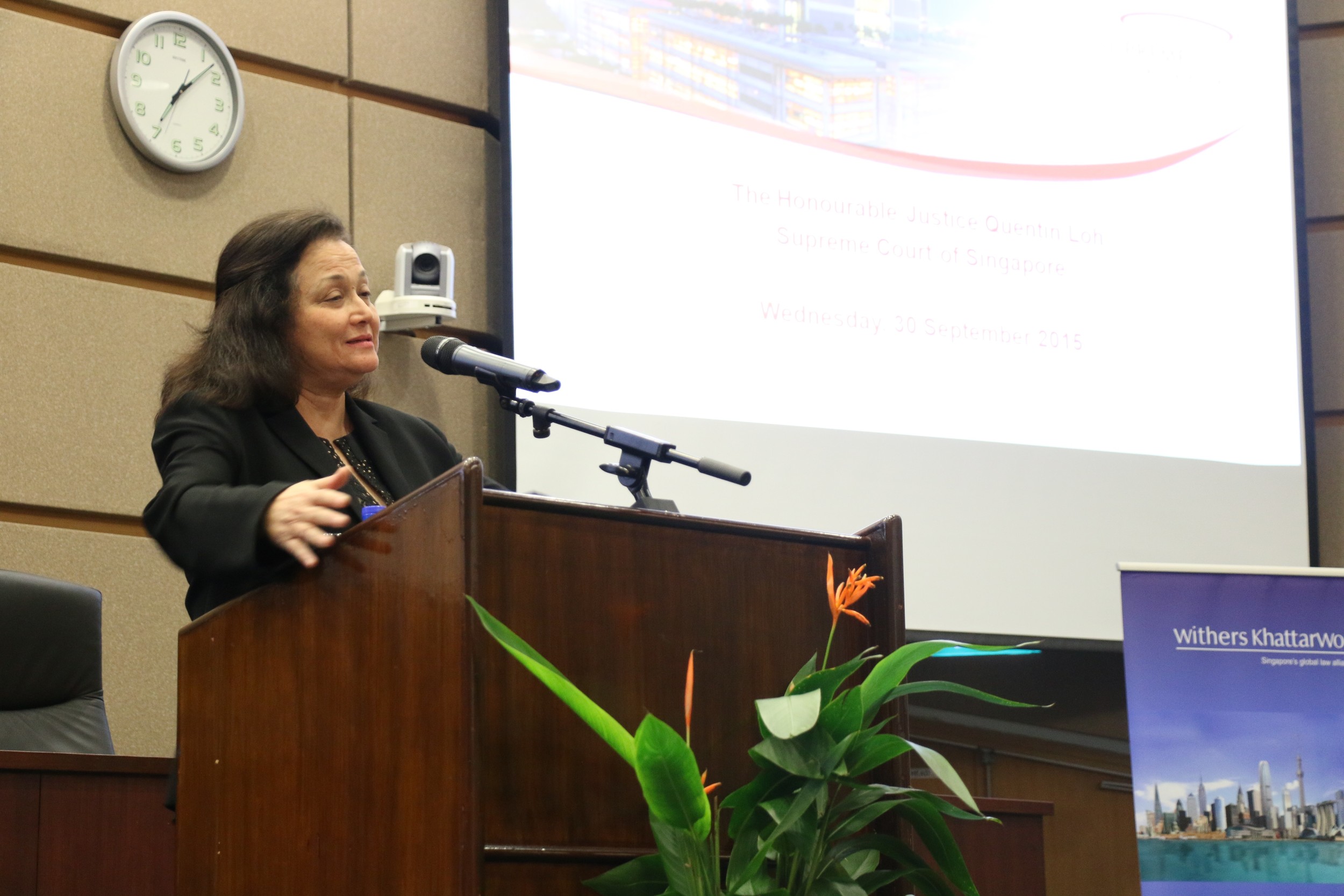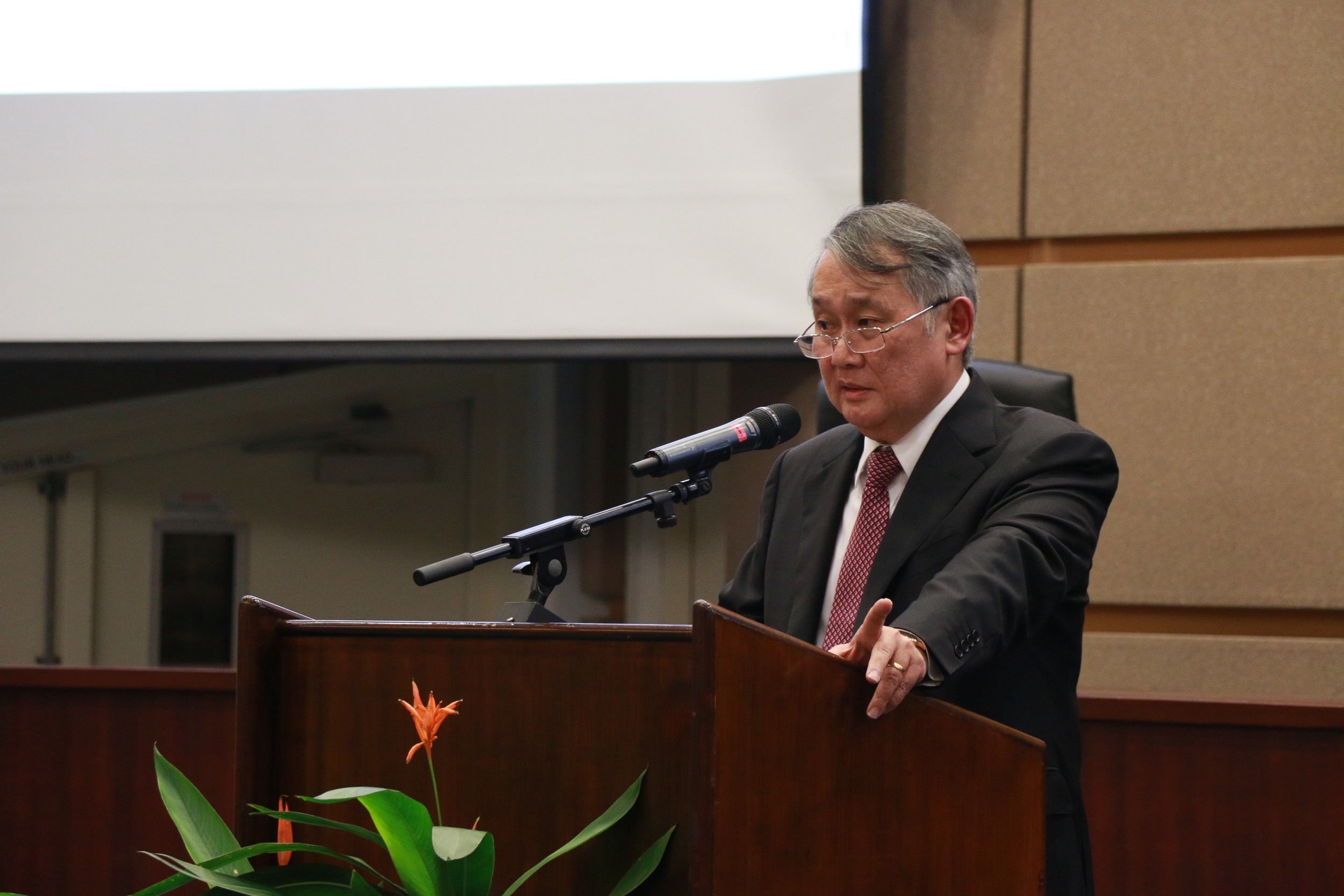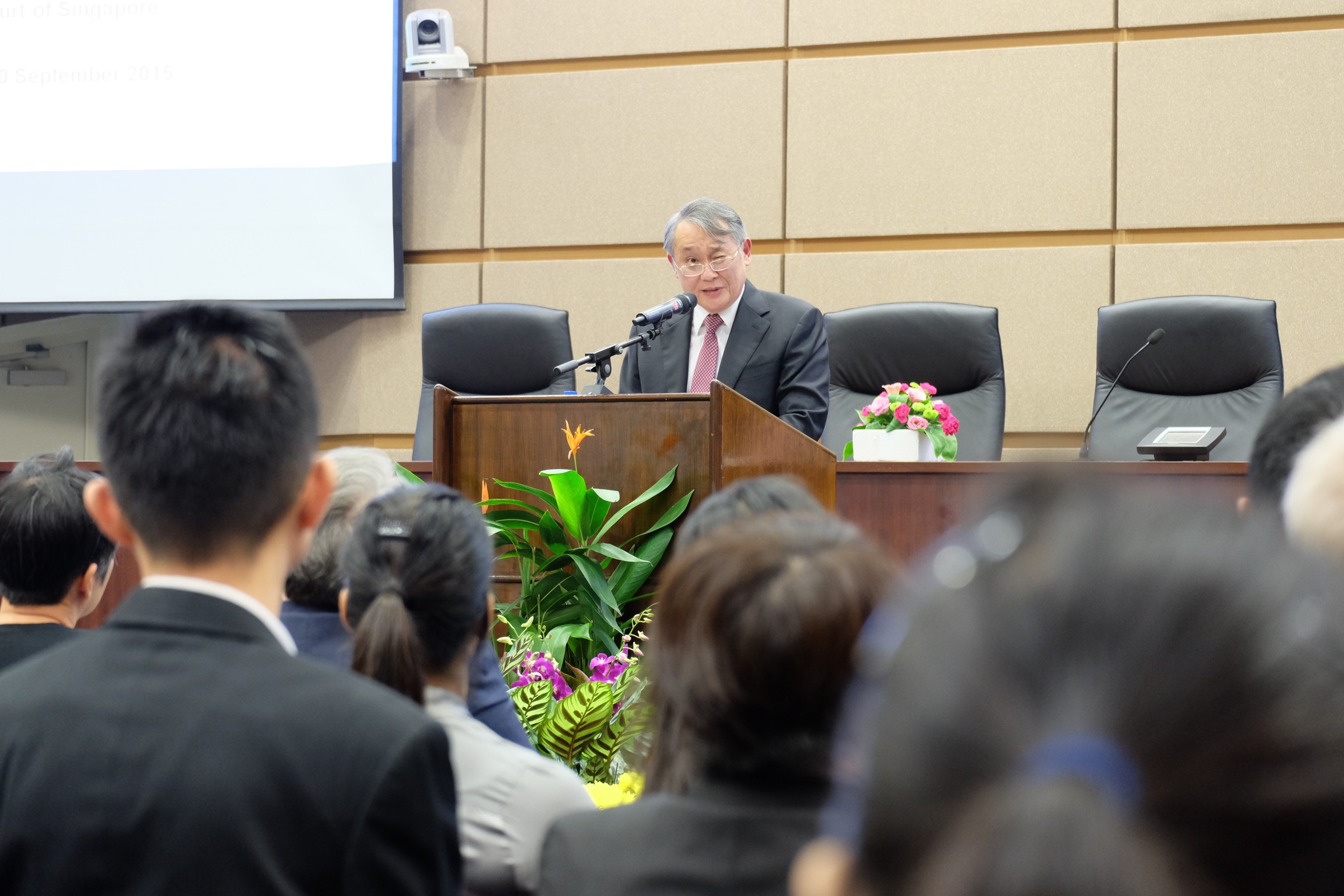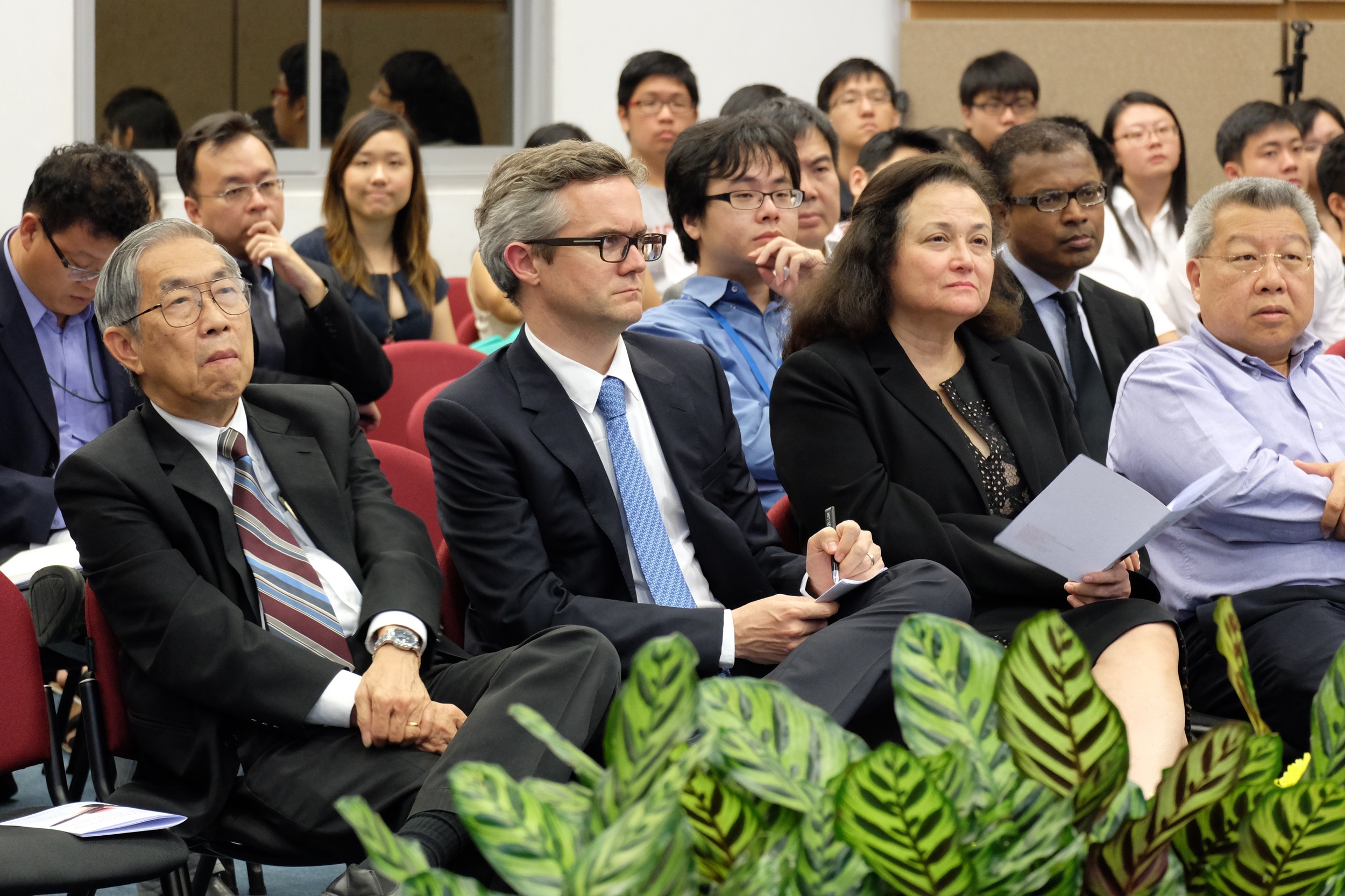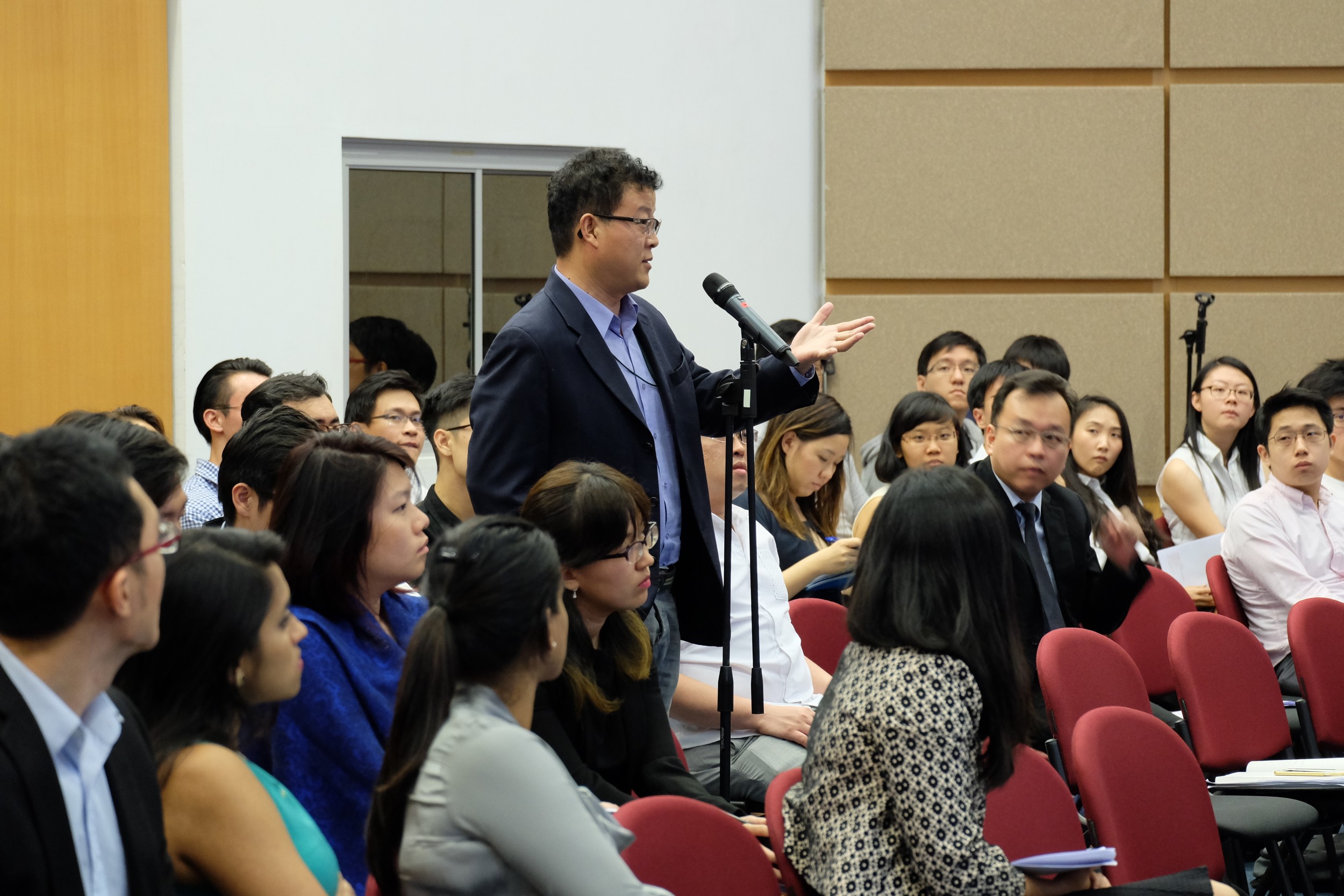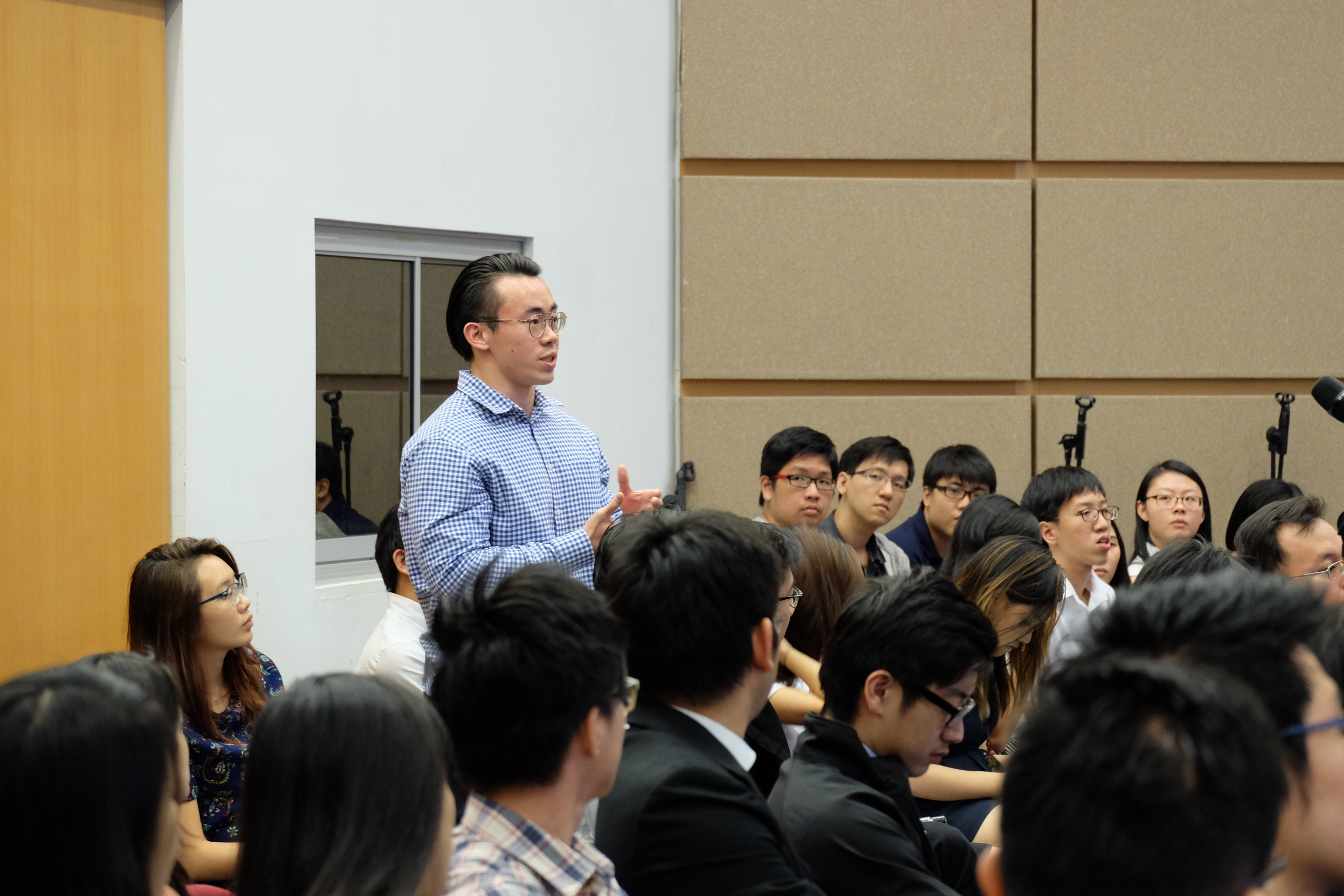On the 30th of September 2015, the Singapore Law Review was honoured to have the Honourable Justice Quentin Loh, Judge of the Supreme Court of Singapore, deliver our 27th Annual Lecture. His lecture was titled “The Singapore International Commercial Court: Entrenching Singapore’s Position as a Hub for Dispute Resolution”.
The evening began with a series of opening addresses. First up was the Welcome Address by our Chief Editor, Mr Ng Teng Wei, who spoke of the SLR’s achievements in the past year, including highlights such as the pending publication of the inaugural student-led SLR Research Project. Professor Simon Chesterman, Dean, NUS Law, then also shared about his experiences as an editor of a student-run Law Review, underscoring the SLR’s contribution towards creating a scholarly community amongst the student fraternity. Finally, Ms Deborah Barker SC, Managing Partner of Withers KhattarWong, our sponsor, spoke about the increasing globalisation of law which has manifested, in particular, in KhattarWong’s alliance with Withers to create a global network of offices.
Justice Loh then delivered his Lecture. He started by giving the context to the creation of the SICC, in particular highlighting the successes of the Singapore International Arbitration Centre, and the recent establishment of the Singapore International Mediation Centre. With the further addition of the SICC, Singapore will now be well-positioned to be a hub for dispute resolution, offering a wide variety of mechanisms, institutions and infrastructure to support such dispute resolution.
Turning to the strengths of the SICC itself, Justice Loh highlighted three key differences that will distinguish the SICC from the SIAC. First, the ability to join third parties, which allows for speedy resolution of complex multi-party disputes, such as construction disputes. This should be attractive to parties who decry the inefficiency and risk of having different aspects of the disputes decided by different arbitrators, because of arbitration essentially being an two-party process.
Second, the SICC mechanism is more transparent, as it has open proceedings. While the confidentiality of arbitration may be celebrated in some aspects, it also has drawbacks, for example in the case of string contracts, because parties down the line will be unable to rely on material that was disclosed to an arbitral tribunal deciding on a different part of the contract, and whose proceedings were kept confidential.
Third, the SICC mechanism involves a right of appeal. This arguably can ameliorate the “one shot”, “winner takes all” nature of arbitration, which encourages parties to go to the greatest expense given the high stakes involved.
Having highlighted the strengths of the SICC procedure, Justice Loh then also observed that the drawbacks of the SICC, currently in its infancy, center on the enforceability of its judgments. However, he expressed optimism that the Hague Convention on Choice of Court Agreements, a multilateral treaty that aims to widen the recognition and enforcement of court judgments across jurisdictions, will be well-received, and would therefore support enforcement of SICC judgments.
The Lecture concluded with a lively question-and-answer session. Questions touched on the confidentiality procedures of the SICC, the constitutionality of foreign judges sitting on the SICC bench, and the difficulty of enforcement of judgments in certain jurisdictions.
The evening closed with a dinner reception. The Singapore Law Review would like to thank Justice Loh for delivering this year’s lecture, and our sponsor, Withers KhattarWong, for their strong support. We look forward to another splendid lecture next year!
Writer: Victor Yao Lida
Photo credits: Allen Sng, Hang Ying Yao
Click here for more news.
